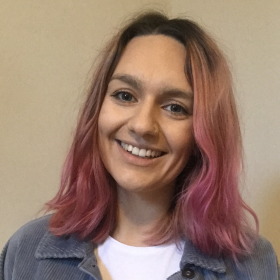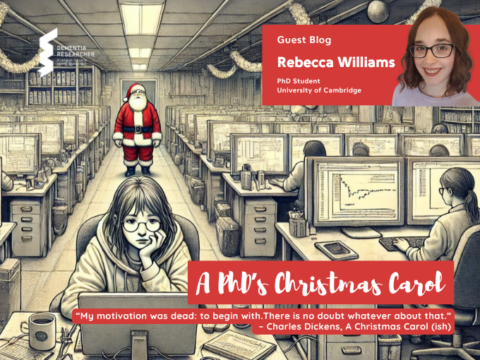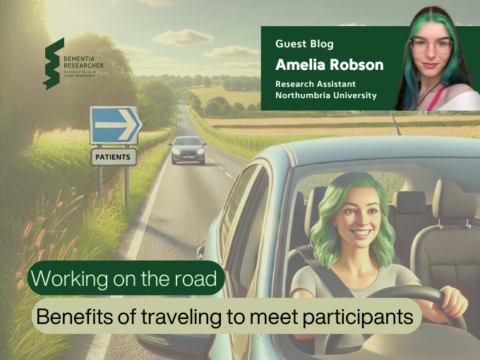As the end of my PhD looms nearer each day the thought of what’s next is certainly on my mind more than usual. If I’m honest, I’ve definitely been someone who has thought about my next steps even from the very beginning of my PhD studies. However, now it’s starting to get much more real. I’ve found that talking about the next steps after a PhD is quite a tough topic, that many individuals don’t seem to want to be asked about – which is understandable as thinking about applying for jobs whilst still doing your PhD is rather overwhelming. Pair this with knowing that job security in academia is pretty tough and it can make the whole situation feel very, very daunting.
However, I thought in this month’s blog I’d talk about the ‘what next’ – and some of the things that I’m currently doing to try and prepare myself for life after the PhD. This is something that’s been on my mind for the past couple of months so I thought it would be a good topic to address.
Clearly, there isn’t just one route after a PhD, as there are various roles within industry and science communication that you can move into, but as I am actively looking for a further role in academia, I will discuss “what next” in this context.
What do you want to research?
There are so many things to consider when deciding what is next after the PhD – personally I’ve been looking into post-doctoral positions. A post-doc is a continuation of your scientific training. If someone is wanting to stay in academia it is often the next step after a PhD. As I’ve been researching post-doc positions, I’ve had to consider how I want to develop my skills and what I would like to continue to research. I’ve found my PhD research area (neurovascular coupling and Alzheimer’s disease) to be fascinating and so this is definitely something I’d like to continue. However, as post-doc positions are competitive and the work many of us do is extremely niche, I am trying to be flexible with my options. Some of the questions I’m having to ask myself include, do you want to use your post-doc to hone in on some of the skills you learned during your PhD? Or do you want to use your next steps to add more technical skills to your scientific toolbox? Is there a specific topic within the field that you want to start to focus on? These are all things I’m having to consider when thinking about ‘what’ to research. I don’t think I realised how tough it would be to decide on the ‘what’ to research but luckily, I still have a while to get this figured out.
Who do you want to work for/with?
Before I started my PhD, I had heard many people talk about how the lab environment or supervisors could make or break your experience – and over the past few years it’s safe to say that that is true. I’ve been so fortunate to work in a supportive lab, with incredibly helpful supervisors. By starting my scientific training in such a good environment, it’s made me realise that who I’ll be working for is important to me. Personally, something I’ve realised over the past few years is that my work-life balance is so important to my wellbeing. I’m someone who will work incredibly hard yet for me, it’s definitely important to consider a lab that also sees the importance of researcher wellbeing. When I first started out, I thought it was really vital to go to the most prestigious universities and work with the most highly regarded researchers however demanding/overworked I may end up. As time has gone on though, I believe fitting into the culture of a lab to be essential. So, on my quest for post-doc positions I’ll be speaking with lab leaders about lab culture, and speaking with current lab members to see if it’s somewhere I could thrive.
Where do you want to work?
The where you want to work is certainly linked with the who you want to work for/with. For example, you may have wanted to move to a specific country/area because you’ve always wanted to move there, but if there is no researcher in your field at that university doing the research that you want to do, then unfortunately you may have to think again on that move. I really wanted to go back and live in Australia for a while, however as my research interests have developed this is looking less feasible. Additionally, not everyone can move for a job. Many people won’t have the funds or may have personal or family responsibilities that mean that moving across the country or world for a job is not going to work for them. As time has gone on again this is something I’ve started to consider even more when considering my next steps and something I still need to figure out.
So, what next?
There are so many factors to consider for the next steps after a PhD – and this is something that will be unique to everyone. In this process of considering my next steps one thing I’ve realised is that forward planning is not the easiest, as you never know when a job will come up doing what you want, with who you want, where you want. So, I’m realising that having a bit a contingency plan is going to be important. I still don’t know what I’m going to end up doing or where I’ll be doing it but I’m hopeful I’ll find the right position.

Beth Eyre
Author
Beth Eyre is a PhD Student at The University of Sheffield, researching Neurovascular and cognitive function in preclinical models of Alzheimer’s disease. Beth has a background in psychology, where she gained her degree from the University of Leeds. Inside and outside the lab, Beth loves sharing her science and we are delighted to have her contributing as a regular blogger with Dementia Researcher, sharing her work and discussing her career.

 Print This Post
Print This Post





